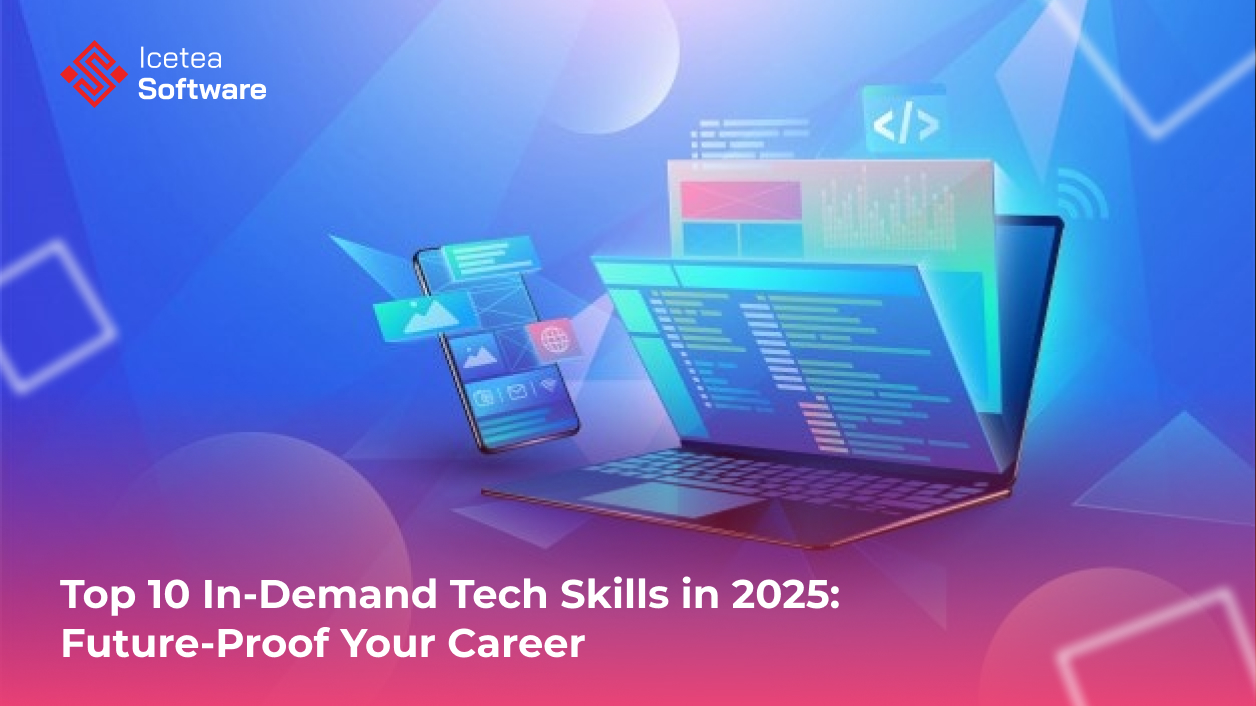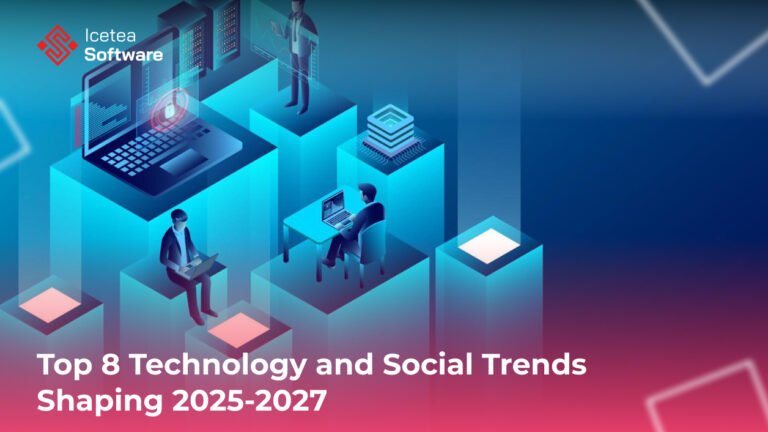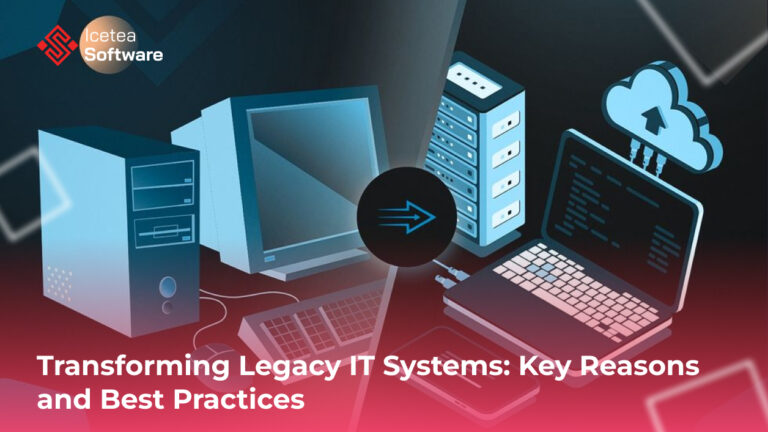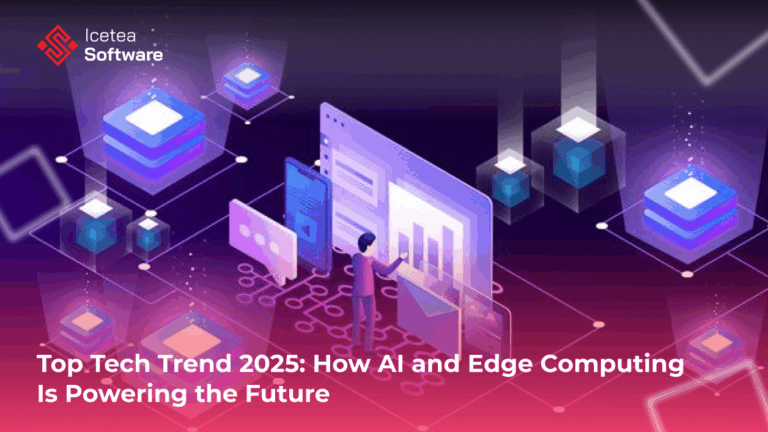Top 10 In-Demand Tech Skills in 2025: Future-Proof Your Career
In an era where digital transformation is no longer a buzzword but a business imperative, tech skills have evolved beyond the realm of coders and IT departments. Today, professionals across all sectors—from marketing and sales to human resources and finance—are expected to adopt, adapt, and apply technology to stay competitive. As we navigate 2025, what…
- 1. Prompt Engineering: Conversing with AI Effectively
- 2. Data Analysis: Making Sense of the Numbers
- 3. Generative AI and Low-Code Tools: Power Meets Simplicity
- 4. Workflow Automation: Do More with Less
- 5. Cybersecurity Awareness: Digital Hygiene for Everyone
- 6. Business Requirements Analysis: Bridging Tech and Strategy
- 7. Data Storytelling: Turning Insights into Impact
- 8. No-Code Development: Build Fast, Iterate Often
- 9. Agile Project Management: Leading with Flexibility
- 10. UX Design Thinking: Designing for People, Not Just Systems
- Final Thoughts: Start Small, Think Big
In an era where digital transformation is no longer a buzzword but a business imperative, tech skills have evolved beyond the realm of coders and IT departments. Today, professionals across all sectors—from marketing and sales to human resources and finance—are expected to adopt, adapt, and apply technology to stay competitive.
As we navigate 2025, what are the top tech skills that employers demand across industries? Which ones offer the best return on your time and effort? Whether you’re a tech-savvy individual or someone from a nontechnical background, this list of 10 essential tech skills will help you prepare for the changing world of work.
Let’s dive in.
1. Prompt Engineering: Conversing with AI Effectively
In the age of generative AI, the ability to craft precise and effective prompts has become a skill in its own right—welcome to the era of prompt engineering.
Large Language Models (LLMs) like ChatGPT, Claude, or Gemini rely heavily on human instructions to produce high-quality outputs. Prompt engineers must understand how to phrase questions, sequence queries, and fine-tune requests to get the best results. This involves not just linguistic clarity but also empathy, creativity, and contextual awareness—skills often found outside traditional tech roles.
Why it matters: As more companies adopt AI-powered tools, professionals who can “speak AI” fluently will gain a significant edge in boosting productivity, improving communication, and enhancing decision-making.
How to get started:
- Use platforms like ChatGPT or Claude for real tasks.
- Practice refining prompts for emails, reports, or research.
- Learn the basics of LLMs via courses on Udemy or DeepLearning.AI.
2. Data Analysis: Making Sense of the Numbers
Data is now the currency of decision-making. Yet, it’s not just about collecting data—it’s about analyzing and interpreting it effectively. That’s why data analysis remains one of the most critical tech skills in 2025.
From small businesses to Fortune 500 companies, leaders rely on dashboards, performance metrics, and trend analysis to steer their strategies. Being data-literate—understanding spreadsheets, using simple data visualization tools, or interpreting analytics reports—empowers you to make informed decisions regardless of your job title.
Why it matters: Every department from sales to operations generates data. Those who can translate it into actionable insights are invaluable.
How to get started:
- Master Excel or Google Sheets formulas.
- Learn basic SQL or use platforms like Airtable.
- Use Tableau, Power BI, or Google Data Studio for visualization.
3. Generative AI and Low-Code Tools: Power Meets Simplicity
Generative AI tools (like ChatGPT, Midjourney, or Synthesia) and low-code platforms (like Power Apps or Bubble) are revolutionizing how solutions are built. In 2025, non-developers are creating apps, automating workflows, and building prototypes—without writing a single line of code.
These tools combine creativity with automation, enabling marketing professionals to design lead funnels, HR professionals to revamp onboarding, or educators to build interactive learning environments.
Why it matters: These skills democratize software development, reduce reliance on IT teams, and accelerate innovation.
How to get started:
- Build a simple app with Glide or Power Apps.
- Explore prompt-based image or video creation with AI.
- Join free hackathons or bootcamps on no-code platforms.
4. Workflow Automation: Do More with Less
As businesses prioritize efficiency, workflow automation is becoming a must-have skill. It’s no longer about deep programming—tools like Zapier, Make.com, and Notion Automations empower users to create automated routines easily.
Imagine this: Automatically sending onboarding emails when someone fills out a form, syncing calendar invites, or updating spreadsheets—all without manual effort.
Why it matters: Automation saves time, reduces errors, and enables teams to focus on high-value tasks.
How to get started:
- Automate a daily task using Zapier or IFTTT.
- Use Notion, ClickUp, or Monday.com to design repeatable workflows.
- Learn integration basics using APIs and pre-built templates.
5. Cybersecurity Awareness: Digital Hygiene for Everyone
With cyber threats becoming more sophisticated, basic cybersecurity literacy is no longer optional. Phishing scams, ransomware attacks, and identity thefts don’t just target IT systems—they exploit human errors.
In 2025, every employee is a gatekeeper. Understanding how to recognize suspicious links, manage passwords securely, and identify data breaches is essential.
Why it matters: One compromised email or careless click can lead to organizational chaos. Security is now a shared responsibility.
How to get started:
- Take beginner-friendly cybersecurity courses (e.g., Google’s Cybersecurity Certificate).
- Use password managers like Bitwarden or 1Password.
- Follow news on cybersecurity threats and trends.
6. Business Requirements Analysis: Bridging Tech and Strategy
Often, the success or failure of a tech initiative hinges on the clarity of its business requirements. That’s where business requirements analysis (BRA) comes in—a strategic skill for identifying problems, defining outcomes, and collaborating with tech teams to design solutions.
This skill is especially crucial for product managers, project leads, and domain experts looking to work effectively with developers or data scientists.
Why it matters: BRA acts as the translator between business problems and technical solutions, saving time, resources, and confusion.
How to get started:
- Document one process in your team that feels inefficient.
- Use flowcharts or tools like Lucidchart to visualize steps.
- Learn to write user stories or requirements documents.
7. Data Storytelling: Turning Insights into Impact
Raw numbers can be intimidating or misleading without context. That’s where data storytelling shines—using narrative techniques and visuals to communicate insights clearly.
For instance, instead of saying “sales dropped by 8%,” a data storyteller might explain, “We saw an 8% drop in Q2 sales due to reduced customer engagement in key regions, signaling a need to optimize our campaign timing.”
Why it matters: Decision-makers respond to stories, not stats. Translating complex data into clear, visual narratives builds influence.
How to get started:
- Learn tools like Canva, Power BI, or Datawrapper.
- Practice summarizing trends in team reports or presentations.
- Read books like “Storytelling with Data” by Cole Nussbaumer Knaflic.
8. No-Code Development: Build Fast, Iterate Often
No-code development is not just for side hustles or startups anymore—it’s entering the enterprise mainstream. Business professionals who understand workflows and customer pain points can quickly launch digital solutions using platforms like Webflow, Bubble, and Airtable.
Whether you’re digitizing an internal process or building a customer-facing app, no-code skills help you test, learn, and adapt with speed.
Why it matters: You become a builder, not just a user—bringing ideas to life without waiting for IT.
How to get started:
- Take beginner courses on Makerpad or Udemy.
- Clone templates and modify them for your context.
- Join no-code communities to stay inspired.
9. Agile Project Management: Leading with Flexibility
Today’s digital projects evolve quickly. That’s why organizations adopt Agile methodologies, emphasizing iterative progress, customer feedback, and adaptability.
Even if you’re not a certified Scrum Master, understanding Agile principles can help you manage change, prioritize tasks, and deliver results faster—skills applicable in both tech and non-tech settings.
Why it matters: Agile teams move fast, learn fast, and fail fast—all while maintaining stakeholder alignment.
How to get started:
- Use Trello, Asana, or Jira to manage a personal or team project.
- Learn Agile roles (Product Owner, Scrum Master) and ceremonies (sprint, standup, retrospective).
- Consider an entry-level Agile certification like PMI-ACP or Scrum.org.
10. UX Design Thinking: Designing for People, Not Just Systems
At the heart of great tech products is user experience (UX) design—understanding how people interact with systems and crafting intuitive, enjoyable interfaces.
Even non-designers can learn design thinking, a structured approach to problem-solving that includes empathizing with users, ideating solutions, and prototyping quickly. This mindset is useful whether you’re optimizing a form, improving an app, or planning a customer journey.
Why it matters: In a digital-first world, experience is everything. Good UX reduces friction, boosts satisfaction, and drives loyalty.
How to get started:
- Use Figma or Adobe XD to mock up interfaces.
- Learn the five stages of design thinking (Empathize, Define, Ideate, Prototype, Test).
- Read “The Design of Everyday Things” by Don Norman.
Final Thoughts: Start Small, Think Big
The beauty of today’s tech landscape is that you don’t need to be a software engineer to thrive in it. Many of the most in-demand skills in 2025 are about critical thinking, creativity, and curiosity—supported by increasingly accessible tools and resources.
Whether you want to build smarter workflows, engage more deeply with data, or co-create with AI, there’s a path forward. The key is to start today.
Remember: In a world where technology changes fast, your ability to learn and adapt is the ultimate superpower.
————————–
𝗜𝗰𝗲𝘁𝗲𝗮 𝗦𝗼𝗳𝘁𝘄𝗮𝗿𝗲 – Cutting Edge Technologies!
Website: iceteasoftware.com
LinkedIn: linkedin.com/company/iceteasoftware
Facebook: Icetea Software






